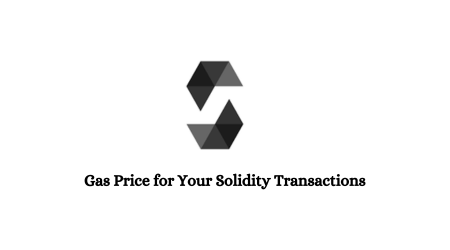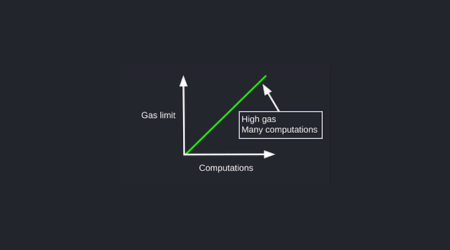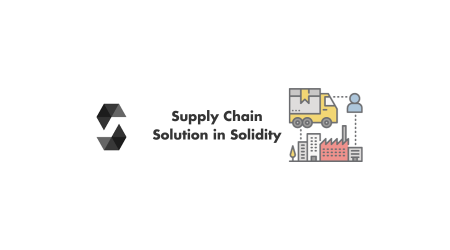Are you tired of wasting your hard-earned money on excessive gas fees for your Solidity transactions? It’s time to take control and set the right gas price!
In this article, we will guide you through the process of determining the optimal gas price for your transactions. We will explore the importance of setting the right gas price, factors to consider, and strategies for optimizing it.
By the end, you’ll be equipped with the knowledge and tools to make informed decisions and save those precious ethers.
So, let’s dive in and master the art of setting the perfect gas price!
1. Key Takeaways
- Gas price optimization is crucial for efficient execution of smart contracts on the Ethereum network.
- Utilize gas price estimation tools for real-time data on current gas prices.
- Factors like network congestion and desired transaction speed should be considered when setting the gas price.
- Gas price fluctuations impact overall transaction cost, so it is important to regularly update the gas price.
2. Importance of Setting the Right Gas Price
You need to understand the importance of setting the right gas price for your solidity transactions.
Gas price optimization is crucial for efficient execution of smart contracts on the Ethereum network. By setting the appropriate gas price, you can ensure that your transactions are processed quickly and at a reasonable cost.
To achieve this, you can utilize gas price estimation tools that provide real-time data on the current gas prices. Considering factors such as network congestion and desired transaction speed will help you determine the optimal gas price for your transactions.
3. Factors to Consider When Setting Gas Price
When deciding on the appropriate gas price for your transactions, it’s important to consider various factors.
These factors include:
– Gas Price Calculation:
– Understanding the current market conditions and demand for gas.
– Monitoring the gas prices on the Ethereum network.
– Analyzing the gas consumption of your transaction.
- Gas Price Optimization Techniques:
- Using gas price prediction models to estimate optimal prices.
- Implementing gas-saving strategies like code optimization.
- Utilizing gas price oracle services for real-time data.
Considering these factors and techniques will help you set the right gas price for your transactions, ensuring efficient and cost-effective execution.
Understanding gas price and gas limit is crucial for successful Ethereum transactions.
4. Understanding Gas Price and Gas Limit
When it comes to managing your solidity transactions, understanding the importance of gas price is crucial.
The gas price determines how quickly your transaction will be processed and confirmed on the blockchain.
Several factors can affect the gas price, such as network congestion and market demand.
To optimize your gas price, you can employ strategies like adjusting the gas limit, monitoring the market, and using gas price estimation tools.
I. Importance of Gas Price
The importance of gas price in setting the right gas price for your solidity transactions cannot be underestimated. It plays a crucial role in determining the cost and speed of your transactions. Here are three reasons why gas price is significant:
- Gas fees are calculated based on the gas price, so setting it correctly ensures you don’t overpay.
- Gas price fluctuations impact the overall cost of your transactions, so staying updated is essential.
- Choosing the right gas price helps balance transaction speed and cost efficiency.
Understanding these factors will help you optimize your gas price for efficient solidity transactions.
Now, let’s explore the factors that affect gas price.
II. Factors Affecting Gas Price
To optimize your gas fees, it’s important to understand the factors that impact gas price.
Gas price volatility is influenced by various market trends. One key factor is the demand for Ethereum network resources. When the network is congested, gas prices tend to rise.
Another factor is the complexity of the transaction, as more computational resources require higher gas fees.
Understanding these factors will help you develop strategies for optimizing gas price and minimizing transaction costs.
III. Strategies for Optimizing Gas Price
Now that you understand the factors that affect gas price, let’s explore strategies for optimizing it. Here are some techniques you can employ:
- Analyze previous transactions to identify patterns and determine the optimal gas price.
- Utilize gas price prediction tools to forecast future gas prices and adjust accordingly.
- Optimize your contract code to reduce the gas cost of your transactions.
By implementing these strategies, you can achieve gas price optimization and improve transaction efficiency.
Next, we will delve into specific techniques for optimizing gas price without compromising transaction reliability.
5. Strategies for Optimizing Gas Price
When it comes to optimizing gas price, there are two key points to consider:
- The impact of gas price on the overall transaction cost and the trade-off between cost and performance. Understanding how the gas price affects the cost of executing transactions is crucial for efficient resource allocation.
- Striking the right balance between cost and performance is essential for achieving optimal results in terms of transaction speed and efficiency.
I. Gas Price Impact
You need to understand how gas price impacts your solidity transactions.
- Gas price volatility can affect the cost and speed of your transactions.
- Gas price benchmarking helps you compare prices on different networks.
- Setting the right gas price ensures efficient and cost-effective transactions.
Now that you understand the impact of gas price on your transactions, let’s delve into the next section – ‘cost vs. performance’ – to further optimize your solidity transactions.
II. Cost Vs. Performance
To optimize the efficiency of your transactions, it’s important to strike a balance between cost and performance. Conducting a cost analysis helps you determine the most cost-effective gas price for your Solidity transactions.
However, it’s equally important to consider transaction speed, as a lower gas price may result in slower transaction confirmations. Finding the sweet spot between cost and performance is crucial for maximizing the effectiveness of your transactions.
Now, let’s explore the tools and resources available for gas price estimation.
6. Tools and Resources for Gas Price Estimation
Using tools and resources is essential for accurately estimating gas prices in your Solidity transactions. To help you with this, you can rely on the following:
- Gas price calculators: These tools provide real-time data on gas prices, helping you make informed decisions.
- Gas fee estimation techniques: These techniques analyze past transaction data to predict gas fees for your transactions.
- Ethereum gas price APIs: These APIs provide access to current gas price data, enabling you to fetch and calculate gas prices easily.
Understanding these tools and resources will prevent common mistakes when setting gas prices.
7. Common Mistakes to Avoid When Setting Gas Price
When estimating gas prices, it’s important to avoid common mistakes that can affect the accuracy of your calculations. To ensure you set the right gas price for your Solidity transactions, follow these best practices:
- Research: Stay updated on the current gas prices and network congestion.
- Test: Use test networks to estimate gas costs before executing on the main network.
- Consider transaction complexity: More complex transactions require higher gas limits.
- Use gas estimators: Utilize tools like etherscan.io or gasnow.org for accurate estimations.




